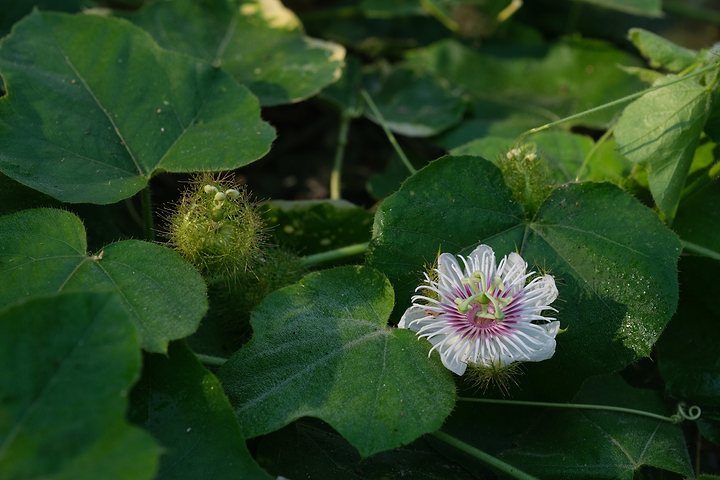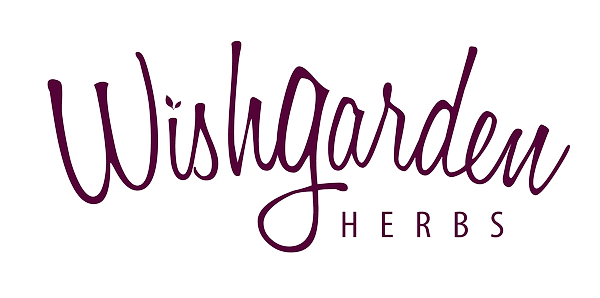
Dreamy Slumbers: Herbal Sleep Support for the Whole Family
Written by Rebecca Younger, CH, CDShare
It’s the middle of the night and you’re wide awake (again).
Whether you're a parent with a restless child, a pregnant woman desperate for comfort, or someone trapped in a cycle of sleepless nights, you know the particular desperation of watching the clock while the world sleeps without you.
What if the answer isn't another sleep medication that leaves you groggy, but something that works with your body instead of forcing it into submission?
Nature offers gentle, effective allies that guide your nervous system back to its natural rhythm, without the morning fog or dependency of conventional sleep aids. These botanical helpers address the root causes of sleeplessness, helping your body remember how to surrender to rest.
Modern Sleep Challenges in Today's World
The modern lifestyle creates unique challenges for achieving restful sleep. Stress and restlessness are primary disruptors of healthy sleep patterns.
According to the National Sleep Foundation, chronic stress can significantly impact one's ability to fall asleep and maintain quality sleep throughout the night. Using digital devices before bedtime further compounds these issues by disrupting natural melatonin production, as reported by the national institutes making it harder to maintain consistent sleep cycles.
Environmental factors in daily life can significantly impact sleep quality and circadian rhythm. Artificial lighting, irregular work schedules, and constant connectivity create a disconnect between the natural sleep-wake cycle and modern demands. These disruptions can lead to various sleep disorders and impact overall sleep health, making it crucial to implement natural sleep solutions, even natural sleep aids, for better rest.
Key Sleep Disruptors Today
Understanding what’s disrupting your sleep is the first step toward finding natural, effective solutions that work for you. In today’s world, achieving high-quality sleep isn’t always simple as modern life throws a lot at our nervous systems, and many of these factors directly affect both how well we sleep and how rested we feel.
Here are some of the most common sleep disruptors:
- Digital Exposure: Too much screen time before bed can suppress melatonin and throw off your sleep-wake cycle.
- Environmental Stressors: Artificial lighting and nighttime noise interfere with your circadian rhythm and make it harder to wind down.
- Chronic Stress: Worry and mental overload can prevent your body from entering the deep, restorative stages of sleep.
- Irregular Routines: Skipping consistent bedtimes and wake times confuses your body’s natural rhythm.
- Dietary Habits: Late-night meals, caffeine, and alcohol can all negatively affect your sleep quality and duration.
Tackling these sleep challenges takes a holistic approach. Think: daily habits, mindful routines, and gentle, plant-based support.
That’s where natural sleep aids come in, like herbal sleep remedies, teas, and sleep promoting supplements designed to calm the nervous system and encourage deep rest. These tools don’t force sleep; they guide your body back to the rhythms it already knows.
Now that we’ve pinpointed the obstacles, let’s dive into the plants that can help. These herbal allies have evolved over centuries to work in harmony with your body’s sleep mechanisms and offer support that’s as natural as it is effective.
Scientific Classifications and Origins
Now that we’ve pinpointed the obstacles, let’s explore three time-tested herbs that can improve sleep and offer real support for modern sleep challenges. These botanical allies work with your body to promote relaxation, ease tension, and support healthy sleep cycles:
- Passionflower – Traditionally used to calm racing thoughts and quiet the mind, passionflower supports the nervous system and helps you ease into sleep without grogginess. It’s especially helpful when stress and mental chatter are the main culprits.
- Hops – Often associated with beer but long used in herbal medicine, hops is a powerful sedative herb that helps reduce restlessness and tension in the body. It supports deep, sustained sleep and is ideal for those who struggle to stay asleep through the night.
- Scullcap – A gentle yet potent nervine, scullcap helps relieve physical and emotional tension, making it easier for the body to relax. It’s a favorite among herbalists for supporting the transition from “on edge” to “at ease.”
Together, these herbs form a powerful trifecta of natural sleep support that work in harmony with your body to promote relaxation, balance cortisol, and restore healthy sleep patterns.
Plant Parts That Pack a Punch: Where the Magic Lives

Not all parts of a plant carry the same power, and when it comes to herbal sleep allies, knowing which part to use makes all the difference.
- Passionflower (Passiflora incarnata) – It’s the aerial parts (leaves, stems, and flowers) that bring the calm. These components are rich in flavonoids and alkaloids that help modulate GABA activity, easing anxiousness and tension and supporting restful sleep.
- Scullcap (Scutellaria lateriflora) – Like passionflower, scullcap’s aerial parts are where the magic happens. Packed with nervine compounds like baicalin and wogonin, this herb supports the nervous system, soothes excitability, and helps promote a deep sense of calm.
- Hops (Humulus lupulus) – The sedative strength of hops lies in its cone-like female flowers, which contain bitter resins and essential oils like humulene and methylbutenol. These compounds are what make Hops such a reliable herb for quieting restlessness and easing the body into sleep.
Understanding which parts of the plant deliver the most benefit helps us appreciate the full spectrum of herbal wisdom, from traditional use to modern application. And while science confirms much of what herbalists have known for centuries, the roots of these remedies go far deeper. Next, let’s take a look at how cultures across the world have used these herbs long before lab results ever came into the picture.
Historical Use and Cultural Significance
The relationship between humans and sleep-supporting herbs has lasted for thousands of years, crossing cultural boundaries and healing traditions. This rich historical context adds depth to our understanding of these botanical allies.
Ancient Sleep Wisdom Across Cultures
Sleep-supporting herbs have been valued across diverse cultures for millennia. In ancient Greece, Hippocrates prescribed valerian for sleep issues and nervous disorders, documenting its effects as early as the 4th century BCE. The herb later became a staple in European monastic medicine, where monks cultivated it specifically for sleep troubles.
Native American healing traditions incorporated passionflower as a central remedy for restlessness and worry. Cherokee healers used it specifically to restore balance to overactive minds. European settlers eventually adopted this knowledge, spreading the use of the herb throughout colonial America.
In traditional Chinese medicine, herbs like jujube seeds (Ziziphus jujuba) have been used for over 2,000 years to nourish the heart's blood and calm the spirit, addressing unwanted wakefulness at its perceived root. These ancient practices recognized the connection between emotional balance and sleep quality long before modern science confirmed these relationships.
How Herbal Sleep Aids Work
Modern life might be relentless, but your body was designed to rest, and herbs know how to help it get there. Understanding the way herbal sleep support works within your nervous system reveals just how powerful (and gentle) plant-based solutions can be.
GABA Activation: Helping Your Brain Chill Out Naturally
Your nervous system relies on a calming neurotransmitter called GABA to downshift into rest mode. Trouble is, stress, screens, and late-night overthinking can throw GABA levels out of balance, leaving you wired when you should be winding down.
That’s where herbs like valerian root and passionflower come in. These natural sleep aids enhance GABA activity in the brain, calming those overactive neural circuits that keep you tossing and turning. The result? It’s easier to fall asleep, stay asleep, and wake up feeling like a functioning human again!
Melatonin & Your Body’s Natural Clock
Melatonin isn’t just a trendy supplement, but it’s also your body’s built-in timekeeper. But artificial light, stress, and disrupted routines can throw off melatonin production and mess with your circadian rhythm.
Some herbs, like chamomile and lemon Balm, support your body’s own melatonin cycle by helping the pineal gland do its thing, naturally. They’re gentle but effective in helping you reestablish a healthy sleep-wake rhythm, especially when combined with good sleep hygiene (dim the lights, ditch the phone, you know the drill).
Multiple Pathways to Better Sleep (Because No Two Sleepless Nights Are the Same)
The beauty of herbal sleep support is that it doesn’t rely on a single mechanism, but works through multiple pathways at once to address the real-life complexity of your sleep challenges.
Here’s how herbs help:
- Nervous System Support: Calms overstimulated brain activity to ease you into rest.
- Hormone Balance: Helps regulate melatonin and other sleep-related hormones.
- Stress Response: Adaptogenic herbs balance cortisol levels, your body’s main stress hormone.
- Circadian Rhythm Reset: Supports your internal clock to restore consistent sleep cycles.
- Sleep Architecture: Promotes healthier transitions through all sleep stages. So, not just getting to sleep, but staying there.
This multi-pathway approach is what makes herbal sleep remedies so powerful. They don’t override your body’s natural rhythms, they remind your system what it already knows how to do: rest, recover, and reboot.
Why These Herbs?

When it comes to sleep, there's no magic bullet, just smart, natural support that works with your body (and your lifestyle) to promote optimal health . That's why passionflower, hops, and scullcap are the stars of our best-selling Sleepy Nights formula. Together, they’re the dream team for the kind of rest most of us are actually looking for: calm minds, relaxed bodies, and uninterrupted ZZZs.
And for the little ones and mamas-to-be? We bring in the gentle power of milky oat tops and linden—two soothing botanicals that nourish the nervous system and support emotional ease in WishGarden Herb's Sleepy Nights for Pregnancy and Sleepy Nights for Kids formulas. These herbs offer the kind of calm that’s perfect for sensitive systems, helping growing bodies (and expectant minds) settle naturally into rest.
What About Valerian
Valerian root is powerful, but not always gentle. That’s why you won’t find it in our nightly sleep blends as we find it’s better suited for occasional use, especially when muscle tension is the main issue. You will find it in our Serious Relaxer formula, where it’s paired with herbs that help the body release built-up stress and unwind physically.
Sleep Support That Matches Your Life
The truth is, many of us don’t need to be knocked out, we just need help letting go of the day. That’s exactly what these three herbs do, and why they’ve earned their place in our most-loved sleep formula. They’re effective, non-habit forming, and easy to use every night.
How to Use Sleep Herbs Effectively
There’s an art to getting the most from your herbal sleep routine, and it’s not just about what you take, but how you take it. Whether you're steeping a calming tea or reaching for a liquid tincture, using herbal sleep aids the right way can make a big difference in how quickly (and deeply) you drift off.
Here are a few simple but powerful tips to help your sleep herbs do their thing:
- Timing: Take herbal sleep remedies about 30–45 minutes before bed to give them time to ease your system into rest mode.
- Preparation: Steep herbal teas for at least 10 minutes to fully extract their beneficial compounds (patience pays off here).
- Combination: Blending complementary herbs helps you address multiple sleep challenges at once (think mental chatter and physical restlessness).
- Consistency: Like most good habits, herbal support builds over time. Stick with it nightly to see deeper, longer-lasting effects.
- Environment: Sip your tea or take your tincture in a calm setting (dim lights, no screens, cozy blanket optional but encouraged).
A steady nightly routine (plus your favorite plant allies) helps re-train your sleep-wake cycle and supports better sleep quality, naturally. If you’re new to herbs, try starting with one at a time before combining them. And as always, check in with your healthcare provider if you’re on medication or managing a health condition.
Sleep Herb Showdown: Choosing the Right Fit for You
No two sleepless nights are exactly the same, and that’s why different herbs shine in different scenarios. Here’s a quick guide to help you match your symptoms with the right herbal support:
- Hops vs. Valerian: Both can help you drop into sleep, but they take different routes. Hops is your go-to for mental restlessness, while valerian works more deeply on physical tension.
- Chamomile vs. Lemon Balm: These gentle herbs are longtime favorites, but they have slightly different vibes. Chamomile is calming overall and often great for digestion-based sleep issues. Lemon balm excels when thoughts and worry are crowding your headspace.
- Passionflower vs. Scullcap: These two both support the nervous system beautifully. Passionflower is fast-acting and great for racing thoughts, while scullcap builds more gradually, offering deeper, long-term nervous system support, perfect for folks who are chronically wired but tired.
Herbal Sleep Solutions Transform Wellness
Herbal sleep remedies aren't just alternatives to prescription pills, but rather ambassadors from a forgotten wisdom. When you reach for holistic solutions, you're not simply soothing a symptom; you're correcting a root issue.
These botanical allies work differently than conventional solutions. Rather than forcing sleep upon an unwilling body, they gently coax your nervous system back to its natural rhythm, and address the root of your sleeplessness while honoring your body's complexity. No dependency. No morning brain fog. Just your body remembering what it always knew how to do!
Rebecca Younger is passionate about herbs and women's health. She aspires to plant seeds of inspiration within her community about plant medicine and healthier ways of life. She studied Herbal Medicine at Herbalism Roots in Denver and is a certified Doula through the Matrona Foundation. She is the Brand Communications Specialist at WishGarden Herbs.
For educational purposes only. This information has not been evaluated by the Food and Drug Administration. This information is not intended to diagnose, treat, cure, or prevent any disease, or to sell any product.



















